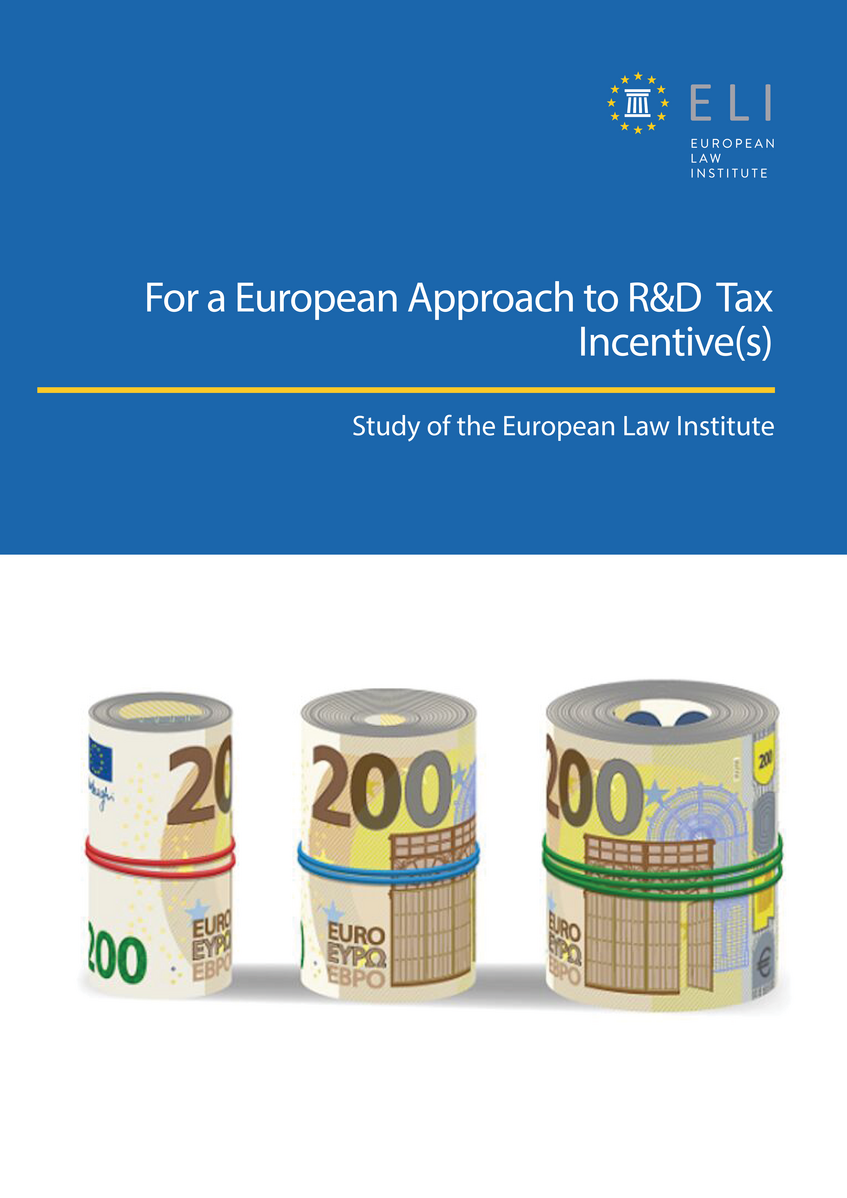ELI Study For a European Approach to R&D Tax Incentive(s)
Background
The fall off in economic activity following the financial crisis of 2008 has highlighted the need to encourage new areas of economic activity. As the European Union deals with the financial and health consequences of the COVID-19 pandemic, this continues to be the case. Innovation is a possible generator of economic activity, one which many believe is underutilised in Europe. It is widely agreed that technological advances are important contributors to long-term growth, but research and development (R&D) of new technologies is risky. That is precisely why EU member states incentivise R&D through their tax systems by supporting companies that invest in new technology.
Boosting R&D is one of the main objectives of the European Union. A majority of studies conclude that tax incentives stimulate investment in R&D and are an important component in encouraging research-oriented economic activity. However, the R&D incentives currently in place in the European Union are not always adequate and in any case piecemeal.
At the end of 2016 the European Commission proposed a Common Corporate Tax Base (CCTB) which contained some elements relating to R&D. The primary aim of the CCTB was to establish a single set of rules for calculating the corporate tax base in the EU member states which should improve the Single Market for businesses by reducing administrative burdens, compliance costs and tax obstacles for companies operating in multiple member states. The CCTB defined R&D, building upon statistical analysis produced by the Organisation for Economic Co-operation and Development within the so called Frascati Manual. Nonetheless, the CCTB did not address many existing discrepancies between national tax laws, including what would constitute R&D expenditure. This lack of certainty as to what constitutes R&D means that there is no uniformity within the European Union as to what costs are eligible for R&D tax incentives. The CCTB proposal did not, therefore, remedy the theoretical and practical problems arising from varying national definitions of R&D and, in this regard, was a missed opportunity to provide a legal environment conducive to R&D.
Aim
The aim of the project was to ensure certainty as to what constitutes R&D for the EU's Common Corporate Tax Base (CCTB), since the CCTB provides a definition of R&D tax incentives, but does not explain which expenses will qualify for a reduction.
Outcome
The ELI Study proposes new solutions to the problem of lack of a uniform definition of R&D and R&D expenditure. The conceptual framework in the Study is particularly apt within the context of EU tax harmonisation. The Project Team took the definition of R&D provided for in the Frascati Manual as a starting point.
The reports prepared by National Correspondents of 14 EU Members States and Switzerland detailed the legislation and practice in their respective jurisdictions. A comparative analysis of these national reports enables this Study to offer a common interpretation of R&D and R&D expenditure.
The Study contributes to the shaping of the new tax legal order, particularly within the EU and is addressed primarily to EU institutions, national legislatures, tax administrations and taxpayers.
Adoption of the solutions proposed in the ELI Study is designed to strengthen pan-European Union R&D activities through a uniform approach to R&D, and thereby contribute to economic activity by removing barriers to the Single Market. This is of interest to member states, citizens, companies and professionals throughout the European Union.
Project Reporter
- Georges Cavalier
Further Members of the Project Team
Rémi Barnéoud
Mehdy Ben Brahim
- Pablo Guedon
- Łukasz Stankiewicz
Assistant
- Jean-Kassim Ouedraogo
National Correspondents
- Felipe Alonso Murillo
- Hrvoje Arbutina
- Gyenger Balàzs
- Jasna Bogovac
- Klàra Gellén
- Mario Grandinetti
- Emer Hunt
- Karlis Ketners
- Sabine Kirchmayr Schliesselberger
- Ziemowit Kukulski
- Steffen Lampert
- Maria Marquardsen
- Athena Moraiti
- Thierry Obrist
- Eugenia Papadopoulou
- Paloma Schwarz
- Malgorzata Sek
- Brent Springael
- Tomi Viitala
Advisory Committee
- Robert Danon
- Theodoros Fortsakis
- Csilla Andrea Heinemann
- Michael Karpenschif
- Michael Lang
- Wlodzimierz Nykiel
- Jeffrey Owens
- Jean-Luc Pierre
- Claudio Sacchetto

